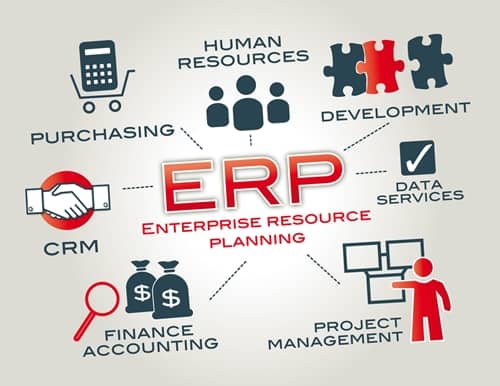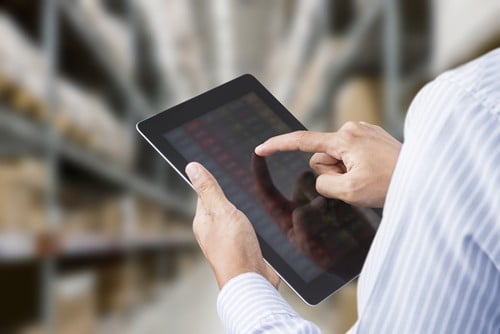Integrated CRM and ERP : The story of the traveling salesman

When it comes to providing sales teams with business software solutions, many companies start with CRM systems but end there as well. There is no doubt customer data is valuable for employees tasked with communicating with current clients and potential leads, but enterprise data can also be very helpful. Integrated CRM and ERP systems allow sales teams to compare what consumers want and what the business has available.
Integrated CRM and ERP solutions like Microsoft Dynamics CRM and Microsoft Dynamics NAV offer numerous features that sales agents and their managers can use to communicate and simplify their daily tasks. Most importantly, these streamlined data systems remove obstacles that prevent sales and present opportunities while in an on-site meeting or on the road.
Sales teams with integrated data
As one of the first brand representative’s clients will speak with, it’s important sales agents operate with a unified truth. Every piece of information utilized by employees should come from an integrated system that shares data on vital company activities and operations.
Sales and Marketing Management said comparing data from sales calls, marketing campaigns and inventory counts is vital to truly understanding how each aspect affects the others. Integrating ERP solutions with CRM systems allows sales and marketing teams to collect information on client and lead communications and see hard numbers on how actions move inventory and increase sales. This information is vital for sales managers planning the future and metrics can also be used to motivate daily sales activities when they are visible for users on convenient dashboards.
A sales team should also know what inventory is available, how long it will take to deliver and particular manufacturing details when discussing possible purchases with consumers. Mobile ERP solutions available through the cloud provide sales teams with these answers when meeting with loyal clients or sitting down with prospects for the first time.
In-store utilization
Many retailers have their sales teams on the floor, talking with prospective customers as they walk through the door. This is especially common with big ticket items, as store representatives must talk about the particular features of major purchases and go over financing options. A Microsoft customer case study shared by goERPcloud detailed how a furniture store integrated Microsoft Dynamics CRM with ERP solutions to give employees on the floor a complete inventory overview they could share with clients.
By equipping sales personnel with tablets, customers who visited the store could inspect furniture on display and drill into datasheets for each piece. Sales agents could show customers exactly what was available; whether a product was in a warehouse or able to be delivered by a certain date. This technology not only sped up the checkout process but also appealed to younger audiences – a demographic the store was trying to reach.
The furniture brand chose Microsoft business software solutions because it knew the system was upgradable and it would be easy to perform future ERP implementation as features become available.
On the road
These ERP solutions are effective for B2C products, but they can be even more important for B2B sales teams. When selling to other companies, having the exact answers to questions is imperative when demonstrating value to individuals who have to make decisions for entire organizations.
A different case study shared through a goERPcloud video featured a bread distributor that used mobile Microsoft Dynamics NAV technology to communicate with grocery chains. Sales representatives for the distributor would visit stores with tablet in hand. They could walk warehouse or store spaces to look at how inventory was moving and compare real world actions to data displayed through graphs or other visual tools provided by Microsoft Dynamics NAV. This made it simple to show value of current contracts or present opportunities for upsells.


